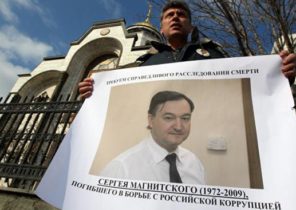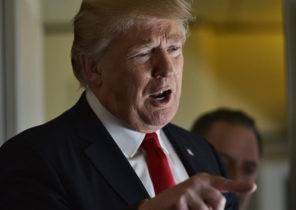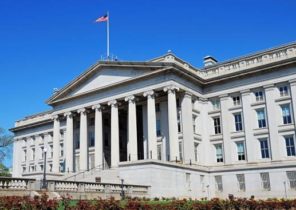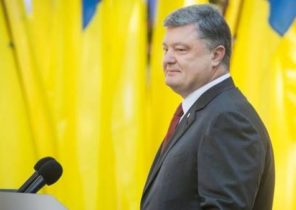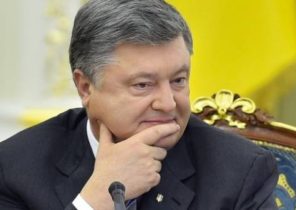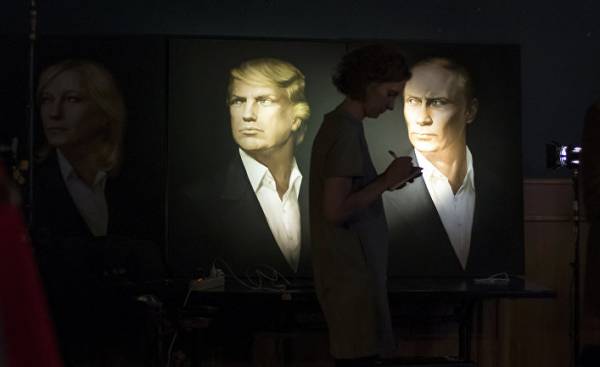
The story alleged links between trump and Russia can be considered in different ways: as a witch hunt as a preparation for the impeachment of Donald trump, as an attempt to divert attention from more important issues, as a serious threat to U.S. national security. However, it would be useful to go beyond these one-sided interpretations and to admit that this story has the potential to once again make America great.
The facts that we know about Russia’s intervention in the American presidential election of 2016, can be divided into three groups according to their degree of reliability. We do know that the Russian sources are propaganda supported trump in his fight against Hillary Clinton, helping to distribute and to focus on those messages that were directed against it, including fake messages. We have compelling circumstantial evidence that hackers stole the e-mails of members of the Democratic party were either Russian, or somehow associated with Russia, and these hackers gave the stolen emails to Wikileaks (which also contributed to the undermining of the positions of Clinton, gradually publish these data).
We have no direct evidence that the members of the electoral headquarters of the trump entered into the conspiracy or in some way coordinate their actions with the Russian government in an attempt to achieve the defeat of Clinton and the election of trump’s (although last week in the Wall Street Journal published a fairly interesting article on this topic).
A few months later multilateral investigations and the constant leaks that turned out to be both much and little. It’s not enough to feed the hopes of the Democrats to offset the trump before the end of his presidential term. It is also impossible to call the appropriate result of a huge amount of effort and resources spent on investigation and media coverage. However, this is enough to demonstrate to the Americans at what point their development is their country — what many did not realize before 2016, Russian President Vladimir Putin started his trolling campaign, forcing them to look at themselves in the mirror.
Assuming that American intelligence agencies had correctly identified the source of hacker attacks and leaks, this is what the Russian President did. Russian propaganda machine supported the current marginal line news and rumors, full of racial stereotypes, conspiracy theories and deep-rooted hatred of progressive processes, and helped it to significantly increase its influence.
The debate over fake news made liberal and conservative Americans to go beyond the information of their forces and look at the radical elements of news feeds each other. Stolen by hackers emails of officials of the Democratic party has painted an ugly picture of the clan insider culture, which rejects any attempt by outsiders to contribute — even if it can be of benefit, as was the case with Senator Bernie Sanders (Bernie Sanders) and which corrupts those in top positions, breaking their ties with the rank and file members of the party.
America is still in front of the mirror. It stands in front of America as she tries to digest the scandal and come to terms with the President, very reminiscent of the businessman from Russia 1990-ies — the man who outright disdain for the rules and accepted norms, who has a weakness for luxury and which has a tendency to sudden outbursts.
When you see these in the mirror for the first time, at first you may embrace numbness and indecision. Perhaps that is what happened with Barack Obama, when he had read the reports of intelligence agencies, which said about the relationship of hacker attacks and leaks with Russia. Then he could support the line campaign headquarters for Clinton — that is, the hypothesis that these leaks should be ignored, because they represent an attack of a hostile state on the United States — especially given the fact that he is actively encouraged to vote for her. Obama refrained, fearing that Russia could try to intervene directly in the voting process.
But obviously Putin was not going to do that. Hackers broke into the computer system kept the information of the electors of the several States, but settled on this one, perhaps expecting some kind of fraud on the part of the Democrats — the Kremlin believed that the Democrats would go for it in trying to achieve the election of Clinton. If hackers found evidence of such fraud, the image of America in Putin’s mirror would have been far more ugly.
Following the torpor impulse is the desire to smash the mirror to attack the Troll, who holds it. This is what is happening now: all Russian or related to Russia is rejected as a security threat, and Congress is considering to impose new sanctions, not paying much attention to potential consequences. It is a mistake for several reasons: trolls are not afraid of such sanctions, the US attacks strengthen the position of Putin in Russia, and his mocking “paranoia” of America find a broad response among Russians and — to a certain extent among Europeans.
Europe quickly learned a lesson that she learned about the attack Putin in the United States. The mainstream media and political activists in France and Germany have teamed up to detect and counter the spread of fake news during election campaigns. Governments, especially the German government, have increased pressure on the social network, forcing them to fight the spread of misinformation. On Friday, June 30, the German Parliament passed a rather controversial law requiring Facebook and other social networks quickly deleted the hate speech and fake information, otherwise they face a fine of up to € 50 million.
During his election campaign Emmanuel macron (Emmanuel Macron) ensure that classified information in any case was not transferred by email. That is why the hackers hacked the computer system of his campaign staff was unable to find anything useful, and the political enemies of the Macron was forced to resort to create fake information in a desperate attempt to affect the election results. Macron have learned the lessons of the campaign, Clinton. Defending is almost the same progressive ideas that he was able to win over stronger players than they were at Clinton, showing themselves as more competent and honest candidate.
As for the German politicians in this election cycle, their huge advantage is that they have nothing to hide. I very much wonder if hackers will manage to find some incriminating information on Chancellor Angela Merkel and her main rival, Martin Schulz (Martin Schulz). But Germany wants to be fully confident in the results of their elections, so she accepted the new law and the decision to create a 13-strong cyber army to counter potential attacks.
Developments in the United States, did the European democracies are more resistant to the influence of propaganda, be it Russian or anyone else’s — and more literate in matters of cybersecurity. At a higher level victory trump has forced these countries to look at themselves in the mirror, then the ratings of the populists fell sharply across Europe, from Brest to Dresden.
If Putin somehow contributed to the election trump, but he also helped Europe to abandon populism. Today, the European democracy is stronger because of his trolling campaign in the United States in 2016.
But if the US is stronger? At the hearings in the Senate, the former Director of the FBI James Komi (James Comey) has warned that Russian “will return.” I’d see US if in a few years, Putin will again decide to do the trick with the mirror?
They probably will see again in the mirror deeply divided country, but, quite possibly, this country will have a more serious approach to its decisions on elections and stop treating politics like a sporting competition in which the winner takes all. The next time the voters will look for in applicants first and foremost honesty and integrity, and perhaps the mainstream parties will react to this choice for candidates who, unlike trump and Clinton, have these qualities. Perhaps these candidates will show more prudence and literacy in the issue of cybersecurity. Powerful technological superpower is a need for leaders who possess modern technology better than ordinary Americans.
Maybe next time will be more open public debate is still fierce and aggressive, but this time more knowledgeable in the mechanisms of propaganda and how information spreads through social networks. The American public might better understand how she processes information — that is, increase their media literacy.
Maybe I’m too optimistic about the future, and Americans will not derive any useful lessons from this story — except the conviction that Russians should not expect anything good. But I believe in the United States: when I went to America during the election campaign, the disappointment and confusion I felt her manpower. Therefore, I believe that America will be able to learn the lessons of this campaign.
No one will thank Putin for it, and he does not need the gratitude of America. If the American public will begin to more seriously approach to its political choice, Putin’s position will become weaker: it no longer is easy to point out the shortcomings of American democracy and to use them to achieve their goals. And, again, if he decides to spend a trolling campaign, as predicted by the Komi Republic, he will have to come up with something more complex and intricate than the simple and cheap campaign of influence.
Sometimes it can help even enemies. Sometimes they can provide it without realizing it. And you need to have a certain degree of discernment to recognize it and to accept such assistance.
